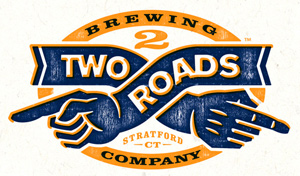
When Two Roads Brewing was negotiating the acquisition of its facility in Stratford, Conn., the company didn’t have a dollar to its name. Once Two Roads – which at the time was still closer to being an idea than an actual business – had secured investment, it ordered brewing equipment before having a real estate contract on the space it now inhabits.
Though the company had an anchor investor, founder Brad Hittle said it was up to him and his team to offer personal guarantees on everything they needed, something he admits was dumb now with the benefit of hindsight.
“Sometimes stupidity pays off,” he said, jokingly, justifying the decision. “It really does.”
The proof of that is in the numbers.
After launching two years ago, the company is now investing upwards of $4 million – backed mostly by cash flow, according to Hittle – into expanding in the same facility it once wasn’t sure it would be able to afford. It was in that same brewery where, on Tuesday, Hittle discussed how far the company has come, while touching on a plethora of other topics along the way, during the last Brew Talks stop of the year.
On contract brewing
Two Roads’ own proprietary production, combined with that of its contract partners is expected to top 75,000 barrels this year, nearly doubling the target the company set for itself at the time, early on, when its founders and primary investors were forced to make personal guarantees to keep the company in business.
While the bulk of that production (about 60,000 barrels’ worth) can be attributed to its dozen or so contract partners, about 15,500 barrels will be branded as Two Roads, enough to catapult the brewery to “regional brewery” status, as defined by the Brewers Association. Additionally, Two Roads has 3,700 points of distribution in its four-state footprint and about 1,700 on-premise accounts in Connecticut alone.
Though currently the majority of the production that comes out of the facility is from its contract partners – including Lawson’s Finest Liquids, Peak Organic Brewing, Evil Twin Bewing, Stillwater Artisanal Ales, Notch Brewing and others – Hittle sees the pendulum swinging a bit in the other direction at some point.
“The mix is probably going to level out close to 50-50 because some of those contract customers are going to get really big and need a bigger solution, might build a brewery,” he said. “That’s part of the challenge with this job, it’s forecasting.”
To do that, Two Roads requires from their partners a two-year forecast, to let them know, as best they can, what their future entails. Because while understanding their partners’ needs might change, if Two Roads loses a contract, it may look to bring on more permanent partners that can utilize the space.
On the spoils of running a contract operation and how to expand distribution

“The luxury of our business model is that the contract side of the business pays some bills, so we can carefully nurture our brand,” said Hittle.
That nurturing process includes a number of things, including the oft-repeated ethos of going deep rather than wide with distribution.
“It’s really about the luxury of controlling your distribution, controlling your growth, when you get to the right stage to go to the next contiguous market,” he said. “Repeat that formula over and over again and not ship to, you know, eight states away and hope.”
On the state of distribution in Connecticut
During his time as chief marketing officer at Pabst, Hittle said distributors would often hoard brands just to collect them, a pattern that has been persistent for the last 80 years. With the proliferation of craft, however, times have changed, according to Hittle.
“[Distributors] have craft teams, they speak the language, they’re all properly trained,”
he said. “We get on the phone with them and we solve problems.”
Despite the often contentious debate surrounding state franchise laws, Hittle also said distributors are a lot more willing to shed brands than once upon a time.
“Distributors are much smarter about what brands to take on,” he added.
On private equity

“The PE side of it, you know, they’re not friends and family for the most part,” he said. “When they invest, there’s an expected return.”
Beyond a mere return, Hittle suggested that by taking on private equity, brewers could also alter their business decision-making process.
“[If] the brewer wants to go out and buy Jordanian sage seeds that’ll cost 30 dollars a barrel, the private equity guys are going to say, hold on a minute, exactly what that going to do for us?’” he said. “Everything is payback and turn, which, you know, it’s good to run a business and try to make money… the relationship is going to be more strenuous obviously.”
During his time at Pabst, Hittle saw first-hand how an infusion of capital can alter the decision-making process. When that business was acquired by C. Dean Metropoulos in 2010, change happened swiftly.
“When Pabst was bought, the guy who bought it, the first day he showed up, he walked in the front door, looked at the newspaper and said cancel that subscription,” he said. “I’m not kidding.”
On session IPAs
“How big it gets, who knows?” asked Hittle. “When Adam met Eve, he said, ‘Stand back, I don’t know how big this thing’s going to get.’”
Because how do you not print that quote?
Really, though, Hittle said he sees them as a “viable segment” moving forward, so long as brewers put out distinct, complex sessionable offerings that are considerably differentiated from the macro-session lagers he said craft brewers have actively tried to avoid brewing.
